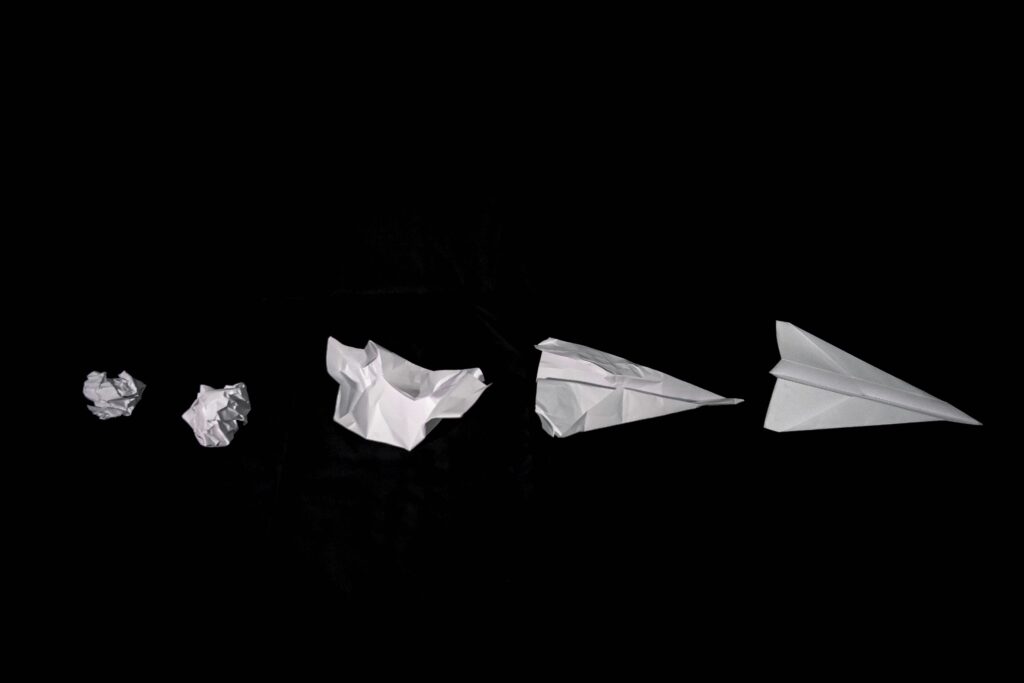Alice Thwaite is a professional tech philosopher and ethicist. She is the founder of the tech ethics campus, community and consultancy, Hattusia. She is also the founder of the Echo Chamber Club, a philosophical institute dedicated to understanding what makes information environments democratic in an Information Age.
Among the many crises we’re experiencing today, one of the most potent is a crisis of trust in institutions. We don’t trust journalists, nor politicians, nor the institutions these individuals work for.
We don’t trust think tanks, social media platforms, commercial organisations, religious organisations … the list goes on.
The response from institutions is to dig in their heels. They want to show they can be trusted. They point to their objective research and the facts they collate.
This article wants to show you that this approach is wrong, and why we should be embracing the subjectivity of institutions.
Objectivity in the 20th century
Let’s begin by talking about the necessity of objectivity 100 years ago.
The 20th century was plagued by totalitarian governments. Totalitarianism is a regime in which the population needs to wholeheartedly subscribe to a particular ideology. Anyone who differs from this ‘total’ belief system is eradicated.
Although the ideologies are grounded in some form of truth, subscribing to a message totally, and without nuance, ensures that the ideology becomes distorted. It becomes a fiction.
Thus, Hannah Arendt famously wrote in The Origins of Totalitarianism that: “the ideal subject of totalitarian rule is not the convinced Nazi or the convinced Communist, but people for whom the distinction between fact and fiction (ie, the reality of experience) and the distinction between true and false (ie, the standards of thought) no longer exist.”
Totalitarianism was an affront against human freedom and human dignity. We all want to make sure that our environments never become totalitarian again. Thus, maintaining standards between what is true and false understandably became an important part of political activism.
Think tanks, in particular, wanted to make sure that they aligned themselves with objective thought and away from ideology.
The spectre of totalitarianism is still fresh in our minds, particularly with populist movements that we experience in the 2020s.
However, we need to consider the dark side of this supposed ‘objectivity’ and appreciate where total subscription to the ‘objective’ ideology can also offend human dignity and freedom.
New forms of power
In The Age of Surveillance Capitalism, Shoshana Zuboff wrote about a new form of power. She named it instrumentarianism.
This has come from marketing technologies which aim to collect as much information about us as possible so that we buy more stuff.
This power is completely indifferent to what people think, as long as it can be predicted. And to make the predictions, it has begun to influence how we behave, because that means their predictions are more accurate.
Other forms of power have also been considered as part of critical theory.
We understand the nuances of oppression a lot more. We understand concepts such as Overton’s window, and the hegemonic ideology which governs what is acceptable and what is not.
Minority experiences are often seen as ‘irrational’ and ‘subjective’ and therefore are not counted as valid.
When close to half of the population in the US and the UK align with political factions who believe think tanks – who aspire to be gatekeepers of evidence-based policy – don’t have their interests at heart, it is worth pausing, and asking ourselves how we got here.
These new forms of power are challenging us to reconsider the relationship between ‘truth’ and ‘freedom’. Different powers which reduce human freedom and dignity require a different understanding of truth.
“at present it seems that we want to believe there is only one concept of truth. And this means we are engaging in all sorts of battles”
But, at present it seems that we want to believe there is only one concept of truth. And this means we are engaging in all sorts of battles.
All sides ‘own’ the truth. We criticise the truth-making practices of our opponents, are quick to flag media elites ‘biases’ against us, and pit ourselves as the one true ‘keeper of truth’.
This truth could be an objective, or it could be a postmodern form of truth, but we are fighting each other, instead of the powerful enemy that is any attack on freedom and democracy*.
What is objectivity?
Objectivity is a ‘truth’ which is contained externally in an object, and this ‘truth’ is not influenced by the person viewing the object, who is the subject.
The problem with the notion of objectivity is whether any subject can state anything about the object without bringing their own worldview into play.
We can acknowledge that truths exist externally to us, while also questioning our ability to express these truths in a non-subjective way.
Some think tanks claim, however, that they are impartial and stand for ‘universal’ principles such as democracy or multilateralism.
Others – particularly those who lean towards the left side of the political spectrum – recognise that such principles are ideologies, and so balk at claiming these principles as foundational values, declaring their loyalty only to impartiality and objectivity. The principles, however, guide their every policy recommendation, whether consciously or not.
Claiming impartiality while aligning with a certain set of values may be seen as obfuscating.
So what could be a way forward?
We need to adapt our idea of what truth is. We have to understand a) not every statement is true, and b) there are finite and multiple truths.**
Building robustness in the methodology is part of the answer. If an institution has followed a methodology transparently and correctly, we can agree that they have a truth-claim.
But we must also recognise that the questions asked in the research and the methodology chosen will both influence the truth-claim at the end.
This is not to say the truth-claim has no value – it does – but it is a claim, it is not ‘the’ truth. Another researcher could follow a similar methodology, with slightly different questions, and reach a different truth-claim.
The point is, think tanks have in-built biases, and that is fine. Every organisation does. They broadly reflect a white, urban, middle-class view of the world.
Perhaps we might engage in a more constructive dialogue if think tanks recognised their assumptions, owned them, and set out how they seek to address them – rather than making unrealistic claims of objectivity and impartiality.
Maybe a good start would be to recognise those basic principles they stand for – for example democracy, multilateralism, the welfare state, and so on – and let the quality of their research be the measure of how valid their truth-claim is.
Through this, we acknowledge the subject as well as the object in our thinking and processes.
We acknowledge our own fallibility and our institutions can bring citizens on a journey to understand truth in the 21st century and beyond.
* Julie Cohen, in the introduction to Between Truth and Power, writes: “The essence of power lies precisely in its ability to shape-shift – to elude the perfect, crystalline characterisations with which scholars have attempted to both capture and cab its methods of operation. Power in operation is pragmatic, seeking and finding patches of least resistance and mobilising the practical and conceptual resources that appear read to hand.”
** There are finite truths because there are finite numbers of people on the planet at any one time.
Image credit: cottonbro studio on Pexels.




